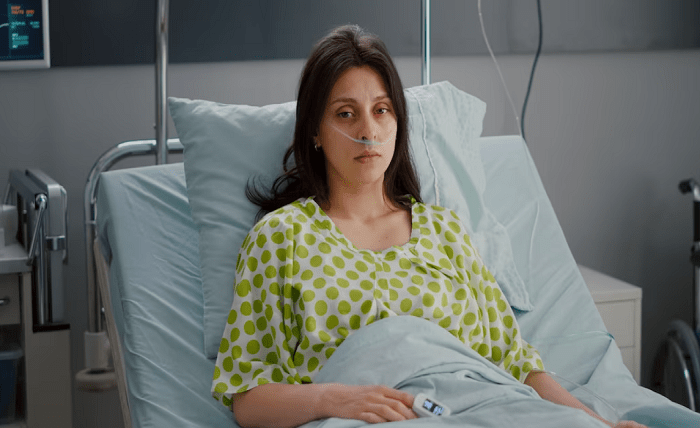The use of IV therapy, more especially IVIG treatment, has become more popular as an alternative treatment for anxiety and depression. Intravenous immunoglobulin treatment, or IVIG, is a process in which antibodies derived from donor blood plasma are infused. Although IVIG treatment has historically been used to treat immune system problems, evidence indicates that it may also benefit mental health.
This blog article examines the possible benefits of IVIG therapy for depression and anxiety, providing a viable choice for people looking for non-traditional therapies.
Understanding Anxiety and Depression
Millions of people around the world suffer from anxiety and depression, which are mental disorders accompanied by excessive worry, fear and nervousness. These diseases are so severe that they can ruin daily life, relationships and general health of a person.
It is important to mention that anxiety and depression are medical disorders, which result from physiological, environmental, and genetic factors rather than character weaknesses or lack of willpower. These disorders need professional support to be well managed and treated.
Traditional Treatments for Anxiety and Depression
Medications
Medications are often prescribed to address the symptoms of anxiety and depression. They function by targeting specific chemicals in the brain to assist with mood regulation and symptom reduction. It is essential to collaborate with a healthcare professional to determine the most suitable medication and dosage for each particular person.
Therapy
Another traditional treatment for anxiety and depression is therapy, including cognitive-behavioral therapy (CBT). It involves the process of working with a therapist to identify and change negative thought patterns as well as behaviors that cause these disorders. Therapy offers people the skills and tools that they need in order to cope with symptoms healthily.
Lifestyle Changes
Lifestyle changes can also be helpful in controlling anxiety and depression. This may involve regular exercise as part of a daily routine, healthy eating habits, adequate sleep and stress-relieving activities such as mindfulness or meditation. These lifestyle modifications can go a long way in enhancing general well-being and relieving the symptoms of anxiety or depression.
The Benefits of IV Therapy for Anxiety and Depression
- Rapid Relief: IV therapy is a type of delivery in which medication is introduced directly into the bloodstream hence it is absorbed quickly which helps in providing prompt relief symptoms as compared to conventional oral dosage.
- Higher Bioavailability: Mechanism IV therapy gives the better availability of drug which means that more proportionate portion of drug reaches its destination within patient and hence gives proper treatment.
- Customizable Treatment: IV therapy allows to develop individually based medication dosage and combinations for the patients suffering from anxiety or depression that implies a personalized method.
- Reduced Side Effects: For this reason, IV treatment prevents it from getting to the intestines thus reducing the side effects such as nausea and stomach upset that are related to oral drugs.
- Longer-lasting Benefits: IV treatment comes with a slow release drug which has a prolonged therapeutic benefit and reduced dosage frequency.
- Enhanced Nutritional Support: Other than to treat with a drug, IV therapy may additionally involve vitamins and nutrients that seem to support general mental health. This brings a more systematic approach to dealing with depression and anxiety.
- Improved Treatment Compliance: IV therapy provides a cost-effective and convenient alternative to daily pill consumption for patients who fail in medication adherence; this problem is eliminated.
Considerations and Precautions
- To determine whether IV treatment is appropriate, speaking with a healthcare provider is essential.
- It’s crucial that an experienced healthcare professional provide IV treatment.
- It is important to take into account any possible hazards or side effects, such as infection, allergic reactions, or problems with infusion.
- IV treatment can be expensive and may not be reimbursed by insurance.
- Sterile procedures and equipment should be used, and they should be properly sterilized.
- If there are negative responses or changes in vital signs, patient monitoring is essential.
- For best outcomes, a thorough treatment strategy that includes counseling or medication is necessary.
Is IV Therapy Right for You?
Some patient IV therapy may be excellent for some patients. Another major benefit of IV therapy is the ability to rapidly administer medications, minerals, and fluids into the circulatory system without going through digestion. This may be a very effective tool not only for patients suffering from problems with the nutritional absorption but also for those who need fast, efficient hydration.
A standard procedure to treat some common health problems like dehydration, vitamin deficiency, and infections in hospital and across various health care establishments is IV treatment. Getting your medical specialist to check whether IV therapy will be suitable for your case and medical history is essential.
Bottom Line
Lastly, IV therapy offers a range of benefits to individuals suffering from anxiety or depression. Via the intravenous administration of essential minerals and vitamins, maximum efficacy and high rate of absorption are achieved. This may reduce symptoms and promote overall wellbeing.
Furthermore, IV treatment ensures that the body gets the nutrients it needs in a more focused and direct manner by avoiding the digestive system. Choose Health Quest for IV therapy if you need to take an infusion. It is a viable choice for people looking for relief from anxiety and depression because of its ability to improve mental health.



